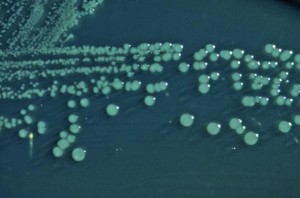At least three confirmed cases of the gastrointestinal infection, Shigellosis, has been reported in preschool students at Heritage Academy in Zephyrhills, according to a school press release.

Pasco County health officials report that some 21 students are being tested for the bacteria, Shigella. The students that are positive are not being allowed back to school until they have two subsequent negative tests.
Shigellosis is an acute bacterial disease of the intestines caused by several species of the bacterium, Shigella. It is typified by loose stools, frequently containing blood and mucus (dysentery), accompanied by fever, vomiting, cramps and occasionally toxemia.
More severe complications may include convulsions in children, Reiter’s syndrome and hemolytic uremic syndrome depending on the species of Shigella implicated.
It is transmitted primarily by fecal-oral person to person means. It can also occur through contaminated food or water. Those that are primarily responsible for transmission are those that fail to wash their hands thoroughly after defecation.
Because Shigella is resistant to gastric acid, a person can get infected with as little as 10 organisms.
After getting infected symptoms usually appear 1-3 days later. It can be transmitted during the acute phase of infection until approximately four weeks after illness when the organism is no longer present in the feces. Asymptomatic carriers can also infect others.
Diagnosis is confirmed through bacteriological culture of feces. Treatment of shigellosis may include fluid and electrolyte replacement if there are signs of dehydration.
Antibiotics can shorten the course of infection, the severity of illness and the period of time a person may excrete the pathogen. Because of some antibiotic resistance, a antibiotic susceptibility test should be performed to determine which antibiotic will be effective.
Related:
- Florida Zika case count now 71, CDC provides additional lab support
- Hawaii hepatitis A outbreak: Another Honolulu food worker tests positive
- Malaysia reports two different Zika strains


2 thoughts on “Shigella outbreak at Zephyrhills school”